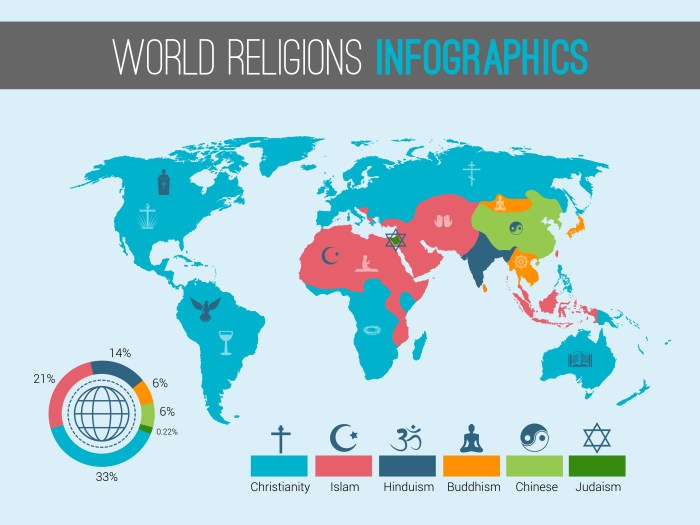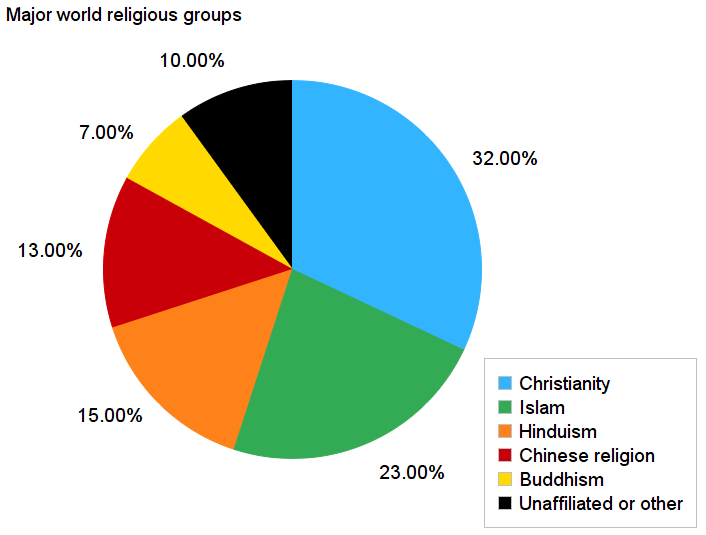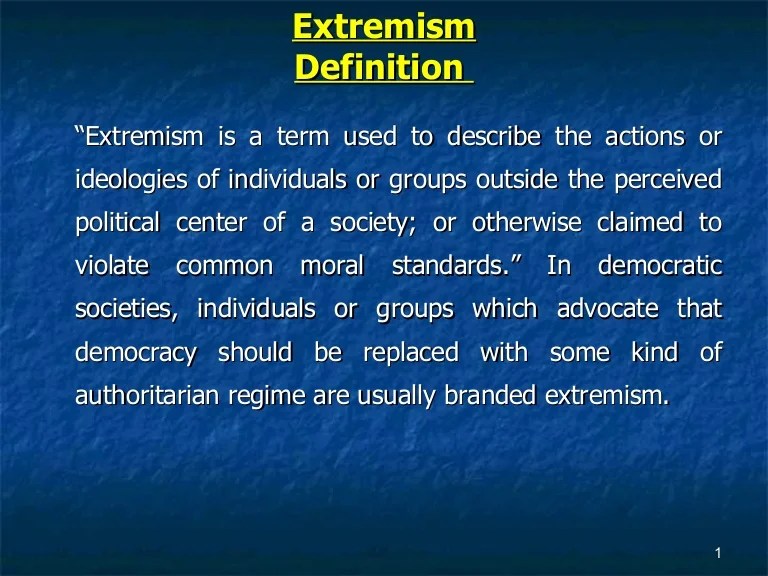Religious extremism definition AP Human Geography is an in-depth analysis of the defining characteristics, causes, and consequences of religious extremism. This exploration delves into the complex interplay between religion, politics, and society, providing a comprehensive understanding of this pressing global issue.
Throughout history, religious extremism has manifested in various forms, from violent terrorism to peaceful but radical movements. Understanding its root causes and potential outcomes is crucial for developing effective strategies to prevent and mitigate its harmful effects.
Definition of Religious Extremism
Religious extremism refers to a set of beliefs and practices that deviate significantly from the mainstream interpretation of a particular religion. It is characterized by an intense and rigid adherence to religious doctrines, often accompanied by a belief in the superiority of one’s own religious group and a rejection of others.
Key characteristics of religious extremism include:
- Strict adherence to religious texts and teachings
- Belief in the exclusivity and superiority of one’s own religious group
- Intolerance of other religious beliefs and practices
- Willingness to use violence or other extreme measures to promote religious goals
Different types of religious extremism include:
- Fundamentalism:A strict adherence to the literal interpretation of religious texts
- Militant extremism:The use of violence to promote religious goals
- Political extremism:The use of religion to justify political ideologies and actions
Causes of Religious Extremism

The causes of religious extremism are complex and multifaceted. They can include:
- Political factors:Political instability, oppression, and discrimination can create a fertile ground for religious extremism
- Economic factors:Poverty, unemployment, and economic inequality can lead to social alienation and a search for meaning in religion
- Social factors:Lack of education, social isolation, and a sense of injustice can contribute to the development of extremist beliefs
- Ideological factors:Religious teachings that emphasize exclusivity, intolerance, and violence can foster extremist attitudes
Consequences of Religious Extremism: Religious Extremism Definition Ap Human Geography
Religious extremism can have devastating consequences for individuals, communities, and society as a whole:
- Violence and terrorism:Extremist groups often resort to violence to achieve their goals
- Social division and conflict:Religious extremism can create divisions within communities and lead to conflict between different religious groups
- Economic damage:Violence and social unrest associated with religious extremism can damage the economy and disrupt daily life
- Psychological harm:Extremist beliefs can lead to anxiety, depression, and other psychological problems
Approaches to Countering Religious Extremism
There are a variety of approaches to preventing and countering religious extremism, including:
- Education:Promoting religious literacy and understanding can help prevent the spread of extremist ideologies
- Dialogue:Fostering dialogue between different religious groups can build bridges and reduce prejudice
- Law enforcement:Enforcing laws against violence and terrorism can help to deter extremist activities
- Community engagement:Building strong communities that are inclusive and supportive can help to prevent the spread of extremist beliefs
Regional and Global Perspectives

Religious extremism is a global phenomenon, but its prevalence and manifestations vary from region to region.
In the Middle East, religious extremism has been fueled by political instability and sectarian conflict.
In Europe, religious extremism has been associated with the rise of far-right and anti-immigrant movements.
In the United States, religious extremism has been linked to white supremacy and anti-government ideologies.
Social and Cultural Impacts

Religious extremism can have a profound impact on social and cultural norms.
It can lead to the erosion of traditional values and practices, as well as the suppression of dissent and free expression.
Religious extremism can also contribute to the rise of authoritarianism and the suppression of human rights.
FAQ Compilation
What is the primary characteristic of religious extremism?
A defining feature of religious extremism is the belief that one’s own religious interpretation is the only valid one and that all others are inherently wrong.
What are the key factors contributing to religious extremism?
Various factors can contribute to religious extremism, including political grievances, economic inequality, social marginalization, and the influence of extremist ideologies.
How does religious extremism impact society?
Religious extremism can have severe consequences for individuals, communities, and society as a whole, including violence, discrimination, social unrest, and the erosion of human rights.
